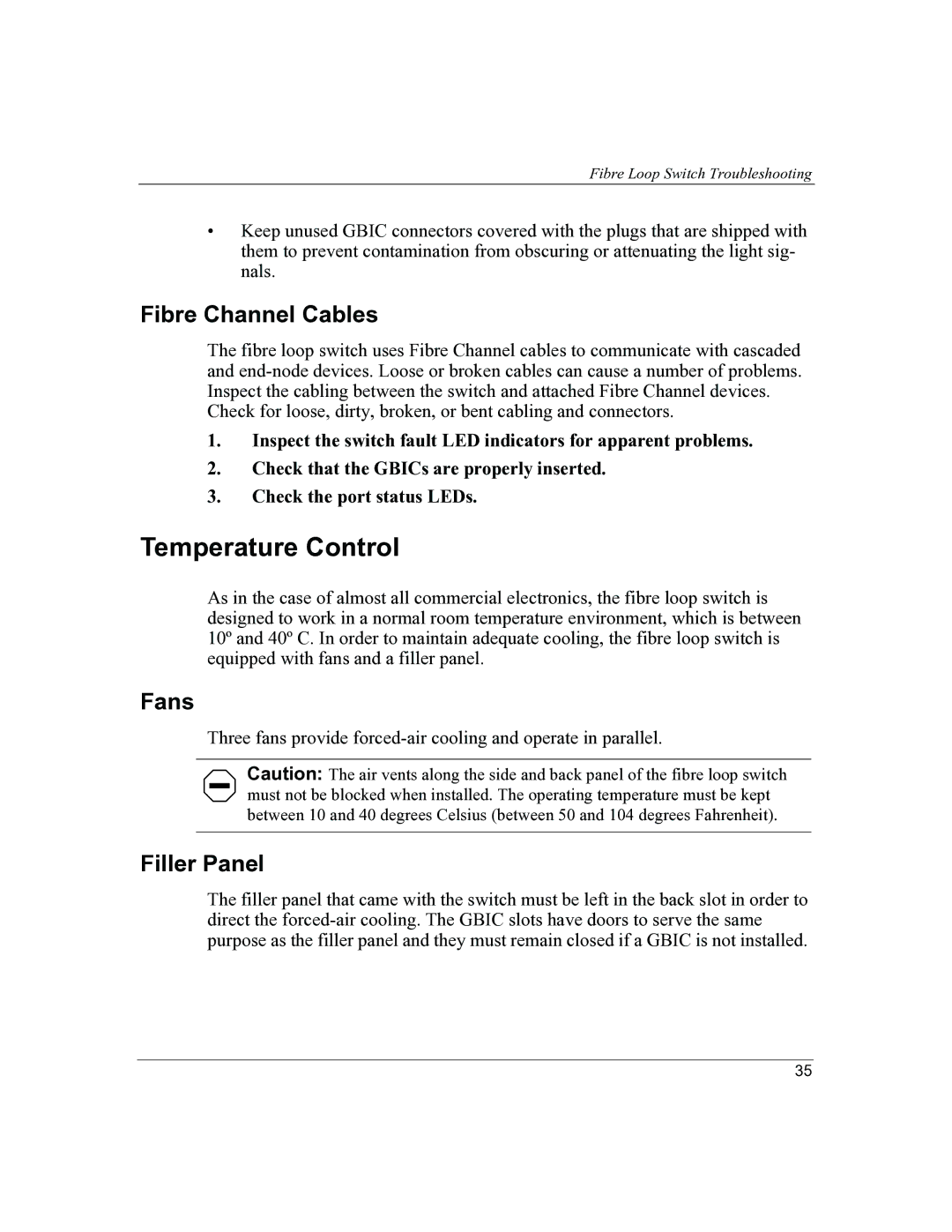
Fibre Loop Switch Troubleshooting
•Keep unused GBIC connectors covered with the plugs that are shipped with them to prevent contamination from obscuring or attenuating the light sig- nals.
Fibre Channel Cables
The fibre loop switch uses Fibre Channel cables to communicate with cascaded and
Check for loose, dirty, broken, or bent cabling and connectors.
1.Inspect the switch fault LED indicators for apparent problems.
2.Check that the GBICs are properly inserted.
3.Check the port status LEDs.
Temperature Control
As in the case of almost all commercial electronics, the fibre loop switch is designed to work in a normal room temperature environment, which is between 10º and 40º C. In order to maintain adequate cooling, the fibre loop switch is equipped with fans and a filler panel.
Fans
Three fans provide
Caution: The air vents along the side and back panel of the fibre loop switch must not be blocked when installed. The operating temperature must be kept between 10 and 40 degrees Celsius (between 50 and 104 degrees Fahrenheit).
Filler Panel
The filler panel that came with the switch must be left in the back slot in order to direct the
35
